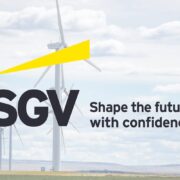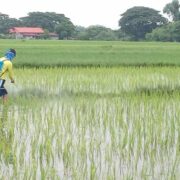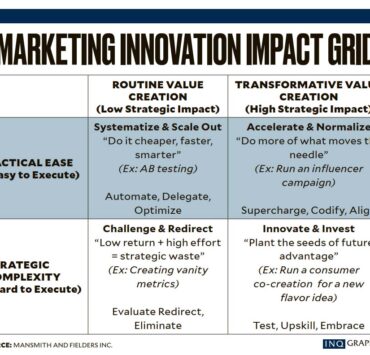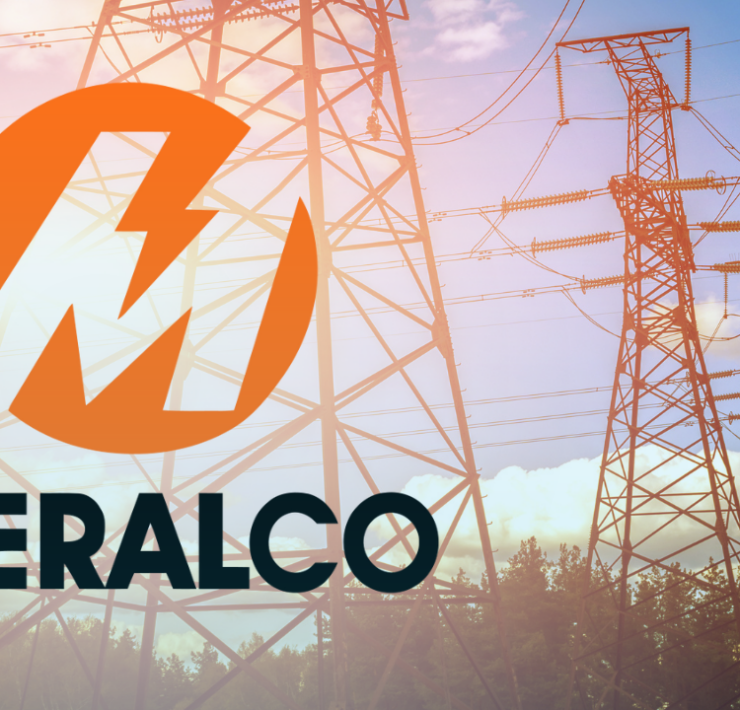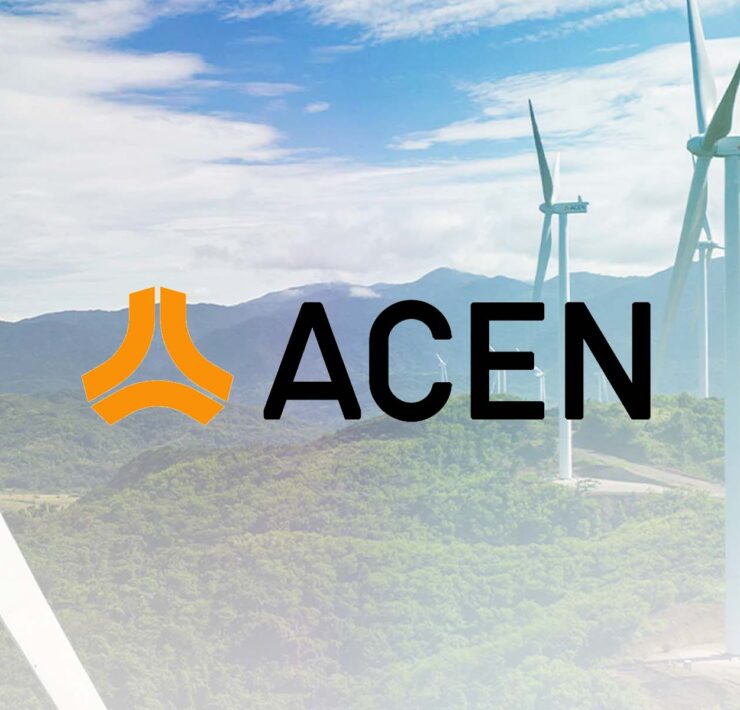Empowering the energy industry for the future
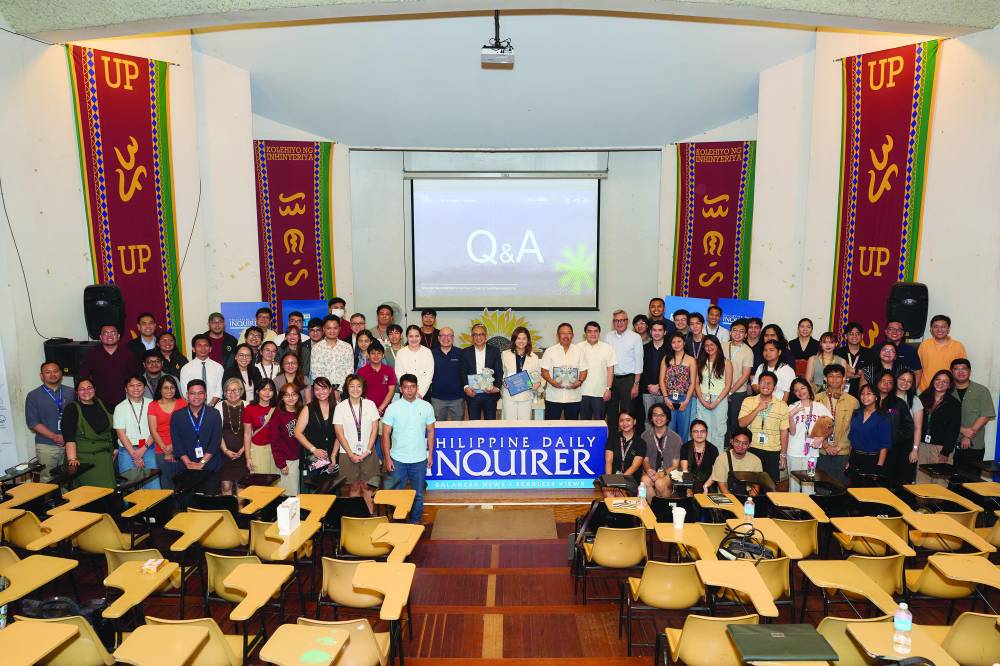
Franklin Delano Roosevelt, the late American president, said it best, in his first inaugural address: “There’s nothing to fear but fear itself.”
And that was the message conveyed by speakers in the most recent edition of the Philippine Daily Inquirer’s Campus Talks, in collaboration with the University of the Philippines, on the topic “Skilling the Workforce for the Future of the Power Industry”.
Undersecretary Mario C. Marasigan of the Department of Energy (DOE); Froilan Jusayan Savet, first vice president and head of networks of the Manila Electric Company (Meralco); and Monette Lasala, chief human resources officer of Aboitiz Power Corporation (AboitizPower) all had the same message to the professionals and future engineers who attended the event: There is nothing to fear about anticipated future changes in the power industry.
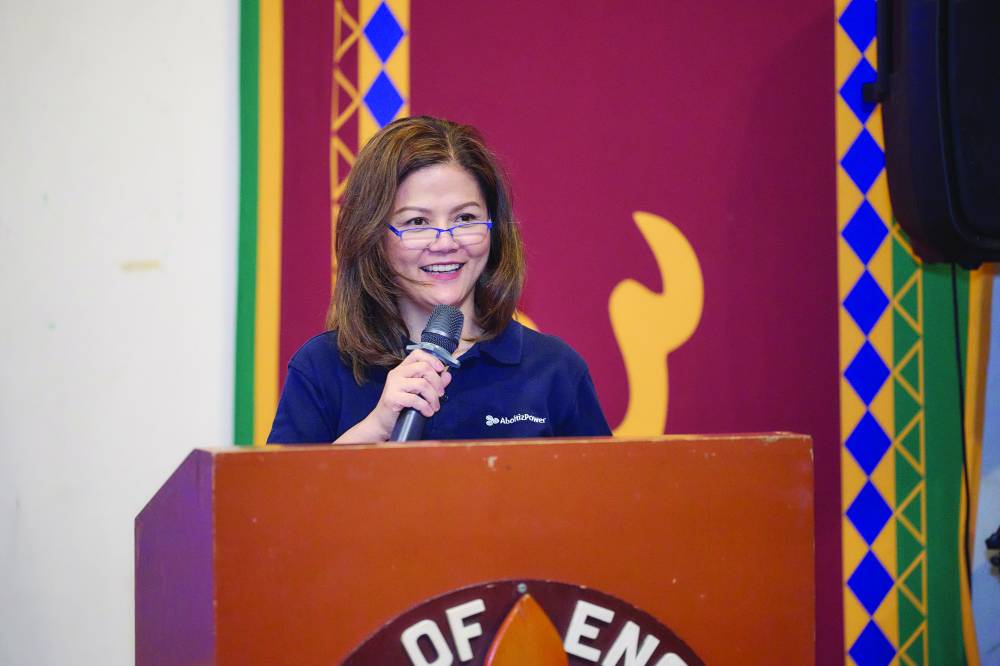
Marasigan said, “All sectors will be changed by the energy transition” from non-renewable to renewable sources. “But do not be afraid,” he told the audience that attended the session at the UP College of Engineering Melchor Hall. “All you have to do is to build from the foundations you have.”
Lasala said, “Renewable energy (RE) is new technology but, at the same time, it blends conventional and new skills.”
People would have to be technology savvy and learn to evolve, she said. They did not have to forget traditional skills but would need to add to what they already knew and be comfortable in new skills.
The idea conveyed by the speakers was, while for some the transition might call for upskilling, for others it might be just a matter of reskilling.
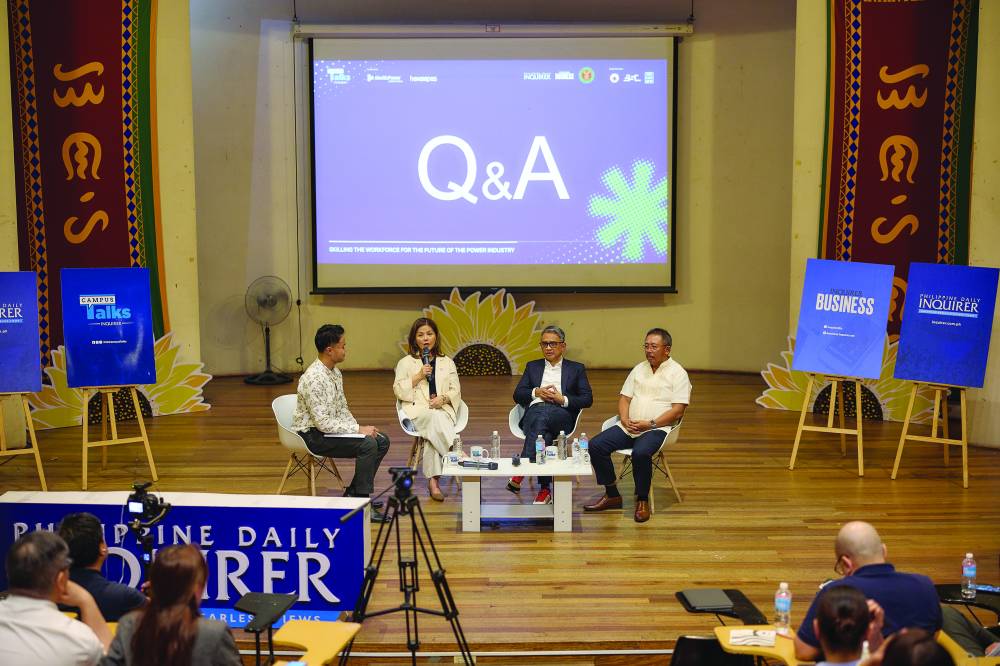
“They might need to unlearn some of the things they used to do,” Lasala said, and embrace the new technologies.
Savet echoed the sentiment. He said people in the power industry “need to change, to evolve, expand and learn new things”.
Marasigan added that the anticipated changes in the power industry did not mean only professionals would be needed. “Technical-vocational skills will remain important.”
Savet said in his presentation, “(The) power industry is not just for engineers but for all of us.”
Lasala said technological skills and “human-centered” capabilities would be needed. “The specific skills needed for the energy transition (go) beyond just technical expertise.”
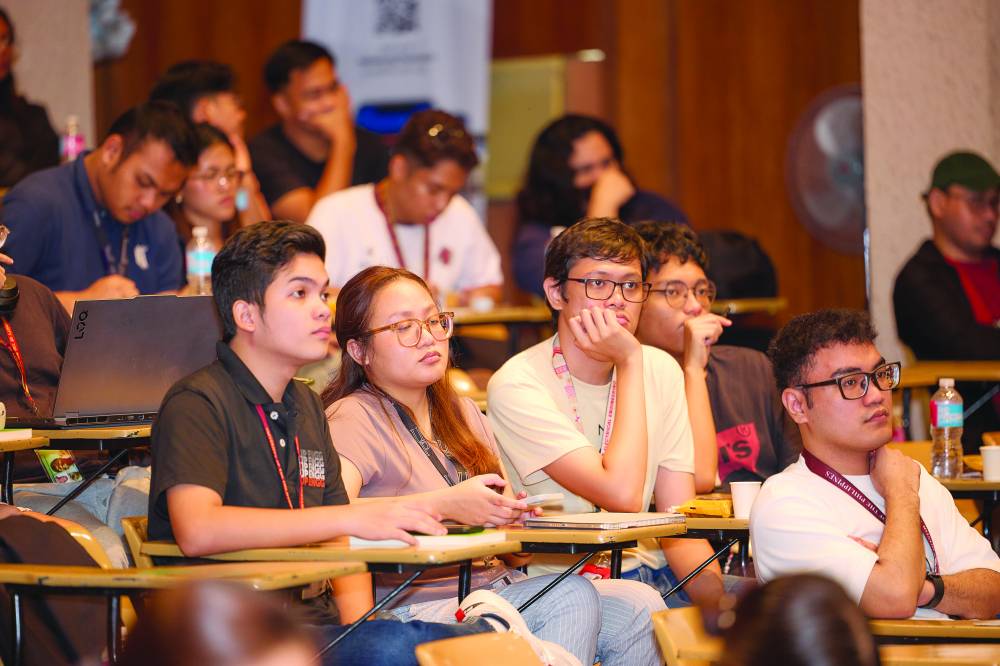
The industry would need people who would know how to deal with stakeholders, how to handle innovation, for instance. Lasala noted that soft skills would be harder to develop than technical skills. Industry players would need to be agile not only to adopt and adapt to changes but also to make sure other stakeholders were not left out nor left behind.
While technical skills were a priority, Lasala said the industry would need workers with the core skills of analytical thinking, resilience, flexibility and agility. Aside from innovation and design thinking capabilities, communication skills would also be required.
Building talent – bridging the skills gap – would be a “smarter, more sustainable strategy” to prepare for changes in the power industry.
To achieve the Philippines’ RE goals, Lasala said the country would need 350,000 skilled workers by 2030. The 75 percent shortage in skilled labor is compounded by the fact that, between 2016 and 2021, there was a 15,000 decline in power industry employment.
Based on Meralco’s own growth projections and development strategy, Savet said the future energy grid would need, of course, digital experts – people savvy in code systems, applications and cloud platforms, artificial intelligence (AI) tools and cybersecurity.
There would be a need for RE, or clean energy, engineers – people with the expertise for solar and wind power generation, for instance, and battery technology for better storage.
While Filipinos remain ambivalent about nuclear energy, Savet faced the issue head on, citing opportunities in this power source. The Philippines, he noted, had a “limited number of nuclear experts” so the generation of nuclear energy offered “a unique opportunity for trailblazers in the field”.
He raised the idea of encouraging Filipino nuclear experts currently based abroad to come home and jumpstart the country’s nuclear energy program. He said nuclear energy might not be renewable but it was clean.
With more than half of the Philippines’ energy requirements being imported, self-sufficiency and self-reliance are major goals of the DOE to avert disruptions caused by geopolitical conflicts. The Department is accelerating and expanding RE projects and programs to avert serious power crises.
This means the DOE will need a more varied set of skills – from administrative to community engagement capabilities – to address the expanded and diversified requirements of a transitioning energy industry.
All speakers agreed that preparing for the future would also mean working with the academe so colleges and universities could tailor-fit their programs and curricula to the projected future needs of the industry and address shortfalls in human resource supplies.
AboitizPower, Meralco and DOE have educational programs for prospective energy industry participants ranging from scholarships to short-term grants, and other initiatives.
Marasigan said DOE was encouraging academic institutions to focus on certain energy programs. Professional organizations, he added, could also help encourage the academe to expand, streamline and adapt their curricula to meet future energy industry needs.
Campus Talks “Skilling the Workforce for the Future of the Power Industry” edition is presented by Aboitiz and Havaianas.

